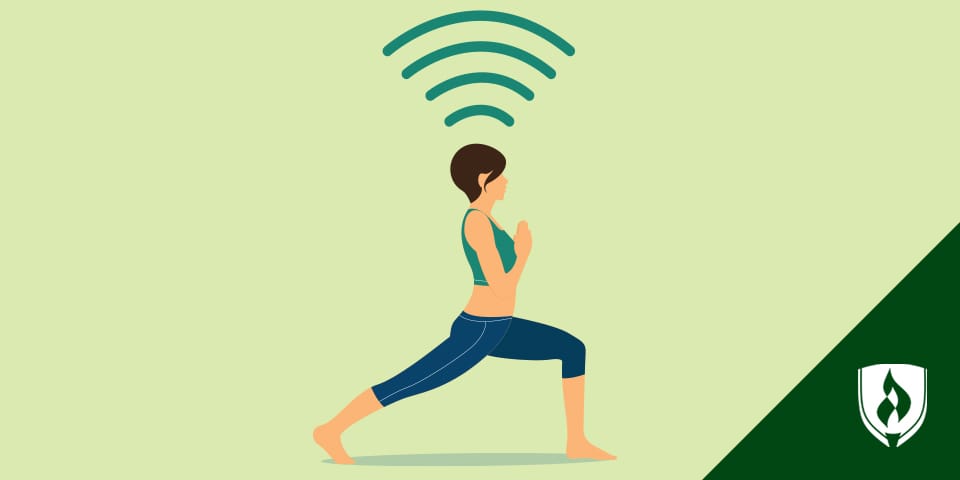
You know you want to pursue a career in healthcare and that you want to make a difference in people’s lives, but perhaps not in the obvious direct patient-care settings. You’d prefer not to be confined to a hospital or clinic every day—you want to be out educating and inspiring people in your community.
After some research, you’re starting to think earning a Health and Wellness degree could allow you to do just that. It would allow you to capitalize on the growing healthcare field and help you make a decent living. You also love the fact that it would allow you to benefit the lives of those in your community and leverage your existing skills and interests.
So now you’re probably wondering: What can you do with a Health and Wellness degree, exactly? Keep reading to familiarize yourself with five rewarding career options in this field.
What is a Health and Wellness degree?
Before getting too deep in the career details, it’s important to have a solid understanding of the degree itself. A Health and Wellness degree covers a broad range of industry knowledge with the ultimate goal of improving the lives of others. This is largely done through preventive action in healthcare. As an advocate of healthy living, a health and wellness professional utilizes many strategies and can be employed in a variety of different fields.
Students pursuing Health and Wellness degrees can expect to acquire skills related to public health insights, wellness advocacy, holistic healthcare, health education, leadership and management, among others. This knowledge is gained through pursuing a Health and Wellness major with a diverse curriculum that covers a wide range of health and wellness topics.
Common wellness courses for a Health and Wellness major:
- Introduction to Healthcare Administration
- Quality Improvement in Healthcare
- Contemporary Health and Wellness
- Multidisciplinary Medical Practices
- Healthcare and Aging
- Behavioral Health
- Epidemiology
This wide-ranging training helps prepare students to become a bunch of different types of health professionals, and serve in a variety of health and wellness careers. When paired with your inherent qualities and passion for improving the lives of others, the skills you’ll acquire through a Health and Wellness program will help equip you for the rewarding career you’re seeking.
5 Health and Wellness careers for degree holders
As you’ve just heard, there are several professional paths this degree can lead you down. Learn more about five potential jobs with a Health and Wellness degree.
1. Wellness coach
The term wellness is defined by the National Academy of Sports Medicine (NASM) as an individual’s personal journey toward the mental, physical, social and emotional betterment of life. Making healthy choices, forming healthy habits and practicing healthy behaviors are all part of an individual’s ongoing wellness journey—and a wellness coach supports them in this process.
As a wellness coach, you’ll help your clients examine their choices for themselves rather than tell them what to do. You’ll often work with other professionals like fitness trainers and healthcare providers, helping to guide everything from a balanced diet to stress management, and creating a holistic wellness approach for your clients.
2. Wellness program coordinator
Also known as a fitness and wellness coordinator, clinical and wellness programs manager, fitness center manager or fitness director, becoming a wellness program coordinator is another career path to consider.
This career will allow you to put your Health and Wellness degree to good use by managing or coordinating fitness and wellness programs and services in various settings. You may also manage and train a staff of wellness specialists, health educators or fitness instructors.
3. Community health promoter
Community health promoters—also called community health workers—are another exciting pathway for those with a health and wellness degree. As a community health promoter, you’ll serve as a frontline to the community by providing vital access to both physical and mental health services.
Community health promoters most often work in marginalized sections of the community, serving the underprivileged and providing healthcare information that can help promote healthy lifestyle choices. Community health workers can have a significant positive impact, fostering open communication between community members, clinics and social services.
4. Supervisory healthcare administrator
Whether you fall on the supervisor level or somewhere similar, a healthcare administrator plays a key role in the health and wellness space. Healthcare administrators work with doctors, nurses, surgeons and technicians, directing the operations of healthcare organizations—from hospitals to nursing homes and other types of healthcare facilities.
While healthcare administrators don’t typically meet directly with patients, their job is still centered around shaping a facility’s policies, systems and operations to improve the patient experience.
5. Health and social service manager
Also called a health services manager, a health and social service manager’s job is to manage and coordinate health services for a clinic, department or facility. They may also specialize in an area of healthcare while overseeing operations and ensuring efficiency. If you consider yourself business savvy, becoming a health services manager might be the perfect fit for you.
Make an impact on public health
So what can you do with a Health and Wellness degree?
Now you have some of the options in mind to guide you. If you’re ready to get started on the path to landing one of these impactful careers, earning a Health and Wellness degree online can be an excellent starting point. This degree can set the foundation for a long career in public health and may be an appealing option for anyone considering earning a Master of Public Health degree further on down the line. Curious about additional healthcare careers? Explore more here.
Careers Disclosure: This program is not designed to meet, and does not meet, the educational requirements for professional licensure as a therapist, counselor, social worker, psychologist, dietician, personal trainer or other similar careers in any state.
Related Articles:
EDITOR’S NOTE: This article was originally written by Callie Malvik and published in 2015. It has since been revised for 2023.




